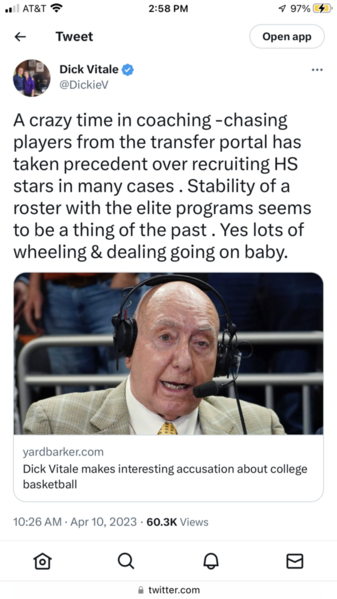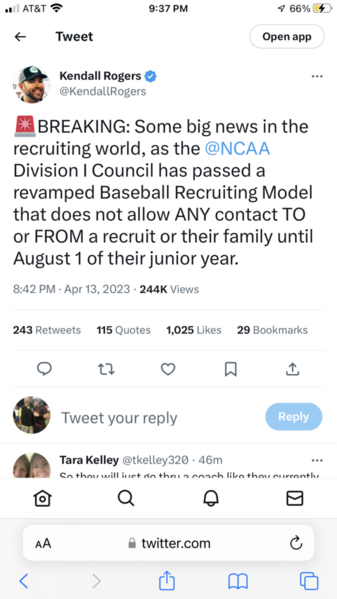The baseball journey has always been a difficult one. Most are filled with ups and downs and don’t end on our terms. My own experience fits that description and the same for both my sons that played. In that respect nothing has changed. I do agree that times are tougher now than ever before. But expectations are also more unrealistic than ever before. And the gap between the tough conditions and unrealistic expectations equals disappointment! I think by now most people understand why the conditions are tough for college baseball players. But the unrealistic expectations need to be talked about. People seem to expect a level of coaching and development that just doesn’t exist very many places. Only people that played college baseball, coach college baseball, or have a son that plays, played, coaches, or coached seem to understand this. And the advent of the transfer portal has made matters worse. There is no doubt about that. But when it comes to making decisions about your own son, people need to embrace the way things are right now instead of lamenting about how things should be.
All good points. Some thoughts of my own after following the ebbs and flows of this thread..
I am not sure the transfer portal is as much of an enemy as it seems to be. Colleges have always been able to recruit JUCO players and still do. Thus, when you are an incoming freshmen, you are not just competing with the remnants of last year's roster and other incoming freshmen, but recruited JUCO players, and now transfer portal guys. I think average players at P5/competitive schools "may" have more to fear from the portal. You may have been a starter last year but you could lose your job to an unknown, yet to be named portal guy. Of course, guys who did not play last year also will have to compete with portal guys.
The more I think about it, the villain here may be the decision they made to allow the extra year of eligibility for the COVID19 issue. That decision has hurt incoming freshmen for several years now. I don't think that was a good decision. Yes, the parents of Super Seniors are happy about this but, but... the ones who are/have been suffering are incoming freshmen buried behind guys who should be on to their life's work by now. If my understandings are correct, this extra year issue won't sort itself out until the 2025 incoming freshmen year.
Based on my experience, and long time membership here, the main way to develop is to be in the game. That is the way it was back then, and that is the way it is now in my lowly, humble opinion. I tell incoming freshmen all the time, you better be in the best shape of your life when you get to college. Train like you are going into the Marines and try to win any running/endurance drill they may have instore for you in the fall. That is one way to turn a coach's head that is not based on talent but desire. Secondly, what happens in fall scrimmages is where they make their decisions in the spring. You light it up hitting or pitching in the fall, you likely will receive a decent shot in the spring. In this thread, John got a spring shot and succeeded. None of us know why he did not get a follow up shot (e.g., injury, low velocity, attitude, etc.)
You've got to be ready for one shot, and one shot only in the spring. You get hit around in your first outing, your next shot may be awhile. You look clueless at the plate, your next shot may be next fall. One positive thing to keep in mind, is the original starters named in the spring do not all succeed as planned. Some struggle with the competition and injuries almost always happen. You have to be ready for one shot when such a situation occurs. When Lou Gehrig got his shot, Wally Pipp never got his job back. That is kind of the way baseball works. If you are not playing, you have to Wally Pipp someone out of the lineup and you may only get one shot to do that.
One thing an incoming freshmen may want to ask the coach directly, "Coach can you place me in a competitive summer league?" If he hem haws on that issue, that could be a red flag. Development happens when they play against live college players in the spring, summer, and/or fall.




